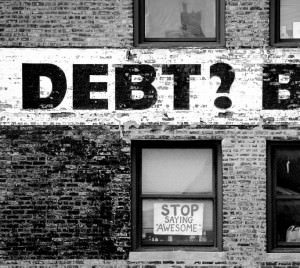 Consumer debt is on the rise. People are getting deeper and deeper into credit card debt because incomes are low and expenses are high. People often succumb to filing for bankruptcy, ruining their credit score. Avoid getting into this situation. Your income may be low, but there are ways you can live around it and stay out of debt. Read this article for helpful advice on how you can get control over your personal finances.
Consumer debt is on the rise. People are getting deeper and deeper into credit card debt because incomes are low and expenses are high. People often succumb to filing for bankruptcy, ruining their credit score. Avoid getting into this situation. Your income may be low, but there are ways you can live around it and stay out of debt. Read this article for helpful advice on how you can get control over your personal finances.
If you have more than one credit card, you should only keep one major credit card and cancel the rest. There is no need for multiple cards. Store cards are especially useless because they are store-specific and carry a very high interest rate. Owning multiple cards will tempt you to charge more. Charging is easy, but paying the bill at the end of the month may be a problem if you over-charged. Always aim to pay your bill in full at the end of every month. You will avoid the exorbitant interest rates and avoid debt problems.
It may be obvious, but you should only buy what you can afford. Having a high credit limit does not mean that you can afford to buy that much. If you do not have cash in the bank to cover what you can buy, then you should not buy it.
The Best Ways to Stay Out of Debt
The best way to stay out of debt is by creating a sound monthly budget and sticking to it. Your budget should have two main components. The first one is a record how much money you bring in in a month. The second component is your list of everything that you need to pay for in the month. This includes any fixed expenses that you are committed to pay each month, and any variable expenses whose amounts can vary from month to month. After you have your list of expenses written down, allocate your monthly income into each expense line. As you get close to the last few items on your expense list, you may find out that you have already allocated all of your income. In that case, you must go back to your list and reduce the allocation in other areas of your variable expenses. Be practical when you are developing your budget, and think about what you really need to buy. Perhaps you can reduce the number of times you go out to eat and cook more at home, thus saving food and dining expenses. Perhaps you should reduce your allocation for recreation or clothing if you have other expense areas that are more important. Do not forget to include a line item for saving for an emergency fund. This is your cushion for any unexpected financial burdens that you have to bear. At the end of this budget exercise, your income and expenses should be in balance. Stick to this budget, and you will stay out of debt.
Living a debt-free life is not impossible. It just takes a little discipline to accept what is important and what is not. Make some changes now. Follow the advice here to begin your journey down a debt-free life.
